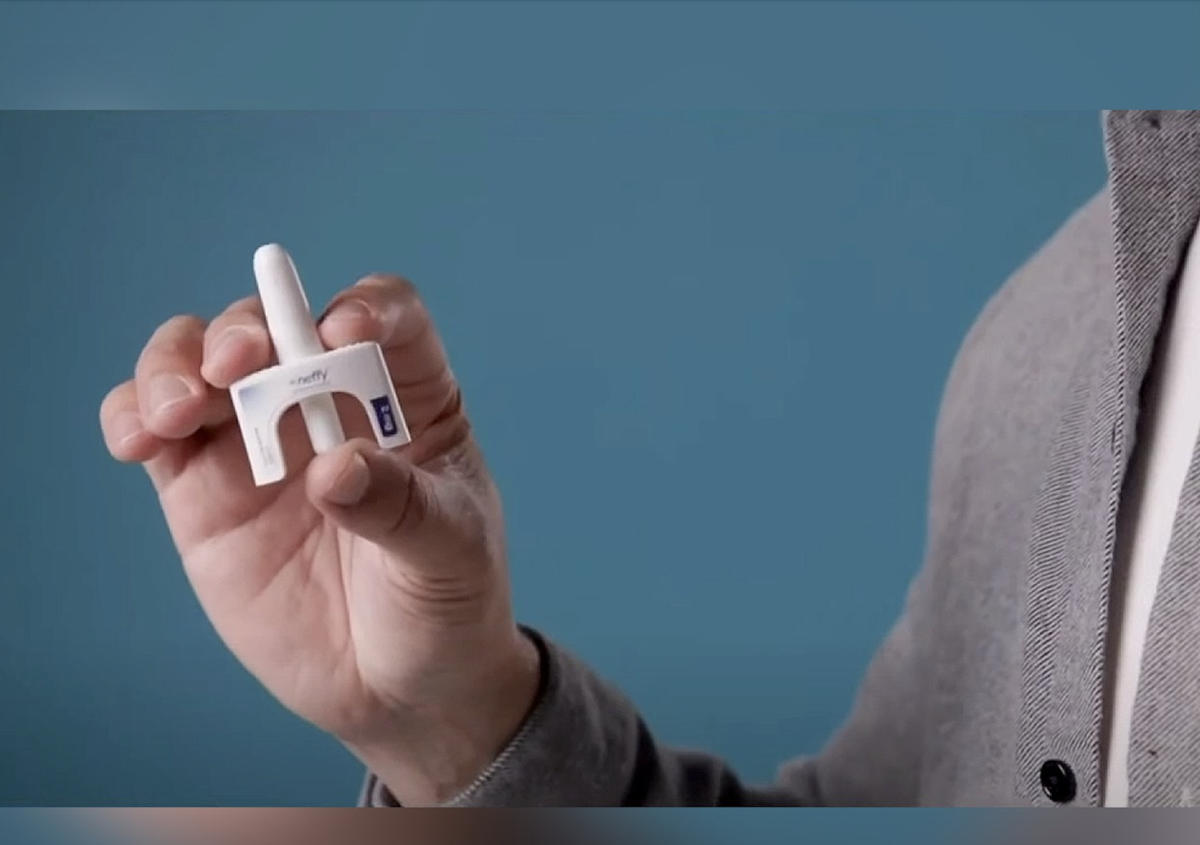In mid-September, the Food and Drug Administration, or FDA, decided not to approve a new epinephrine nasal spray that would provide a needle-free alternative to traditional epinephrine autoinjectors. The agency informed ARS Pharmaceuticals that their product, referred to as “Neffy,” must be additionally studied before entering the commercial drug market.
The FDA requested that this study must directly compare the efficacy of the drug to current autoinjector treatments, which have been used for a long time and have an extensive track record in effectively counteracting potentially lethal allergic reactions.
Since epinephrine nasal spray successfully passed through two FDA subcommittees with overwhelming approval, some found this decision to not approve this drug surprising. The panels voted 16-6 in favor of the drug’s use in adults and 17-5 in favor of the drug’s use in children, respectively.
Neffy and traditional autoinjectors both work to reverse anaphylaxis, a type of allergic reaction of the utmost severity. Anaphylaxis can be completely debilitating and fatal for the individual and can occur within minutes of exposure to the compound the individual is allergic to.
All currently approved epinephrine treatments require injection into the body via needle. These injections can be painful and unpleasant for those who must do them; however, they are necessary in the face of an allergy attack.
As a result of this, Neffy stands to corner the market of epinephrine distribution. The nasal spray would offer a much more convenient, simple and pain-free means of obtaining needed epinephrine in comparison to jabbing yourself or the person in need with a needle.
Neffy’s ease of use and desirability, as opposed to traditional needle injection, could likely encourage more individuals afflicted by severe allergies to carry life-saving epinephrine with them.
According to product research surveys conducted by ARS Pharmaceuticals, as many as 85% of patients who face severe allergies would be willing to carry epinephrine around with them daily if Neffy was an option, up from around 55% with current options.
Many allergists and health professionals were baffled by the FDA’s decision not to approve this drug, especially given that it was proven to work effectively in clinical trials.
According to NBC, Dr. Zachary Rubin, an allergist, cannot believe there is still not an FDA-approved non-needle epinephrine option.
“I’m shocked,” Rubin said. “There are no alternatives right now. You basically have epinephrine autoinjector devices, needle options, and people have been clamoring for years to get a needle-free option.”
Members of the FDA advisory board who voted against Neffy raise questions about the product’s effectiveness, given that traditional treatments have an extensive track record of effectively preventing anaphylaxis.
Dr. Maryann Amirshahi, a professor of emergency medicine at Georgetown University, explained her skepticism of Neffy, which caused her to vote against its approval. She worries that the drug may fail in a life-threatening situation, whereas injections would not.
“While I think the drug has merit, it doesn’t have adequate efficacy data at this point,” Amirshahi said.
Among the critics of the FDA’s decision to reject Neffy is GC criminal justice professor Adam Lamparello. Lamparello feels that the FDA is a political organization, and its decisions are made by bureaucrats rather than based on objective medical findings.
“The FDA is absolutely and undoubtedly political. Their decisions are politically motivated and are not often based on facts, truth or impartiality,” Lamparello said. “Their decision to go against the overwhelming majority on the Pulmonary Allergy Drugs and Advisory Committee in favor of the drug is a prime example of this. There is no real reason to reject this drug.”
Lamparello’s skepticism of the FDA’s action is only intensified by the fact that the study the FDA is saying it needs ARS to conduct was already previously discussed. It was agreed upon that it would occur in the marketing stage after the drug gained approval.
This decision by the FDA could reignite the growing lack of trust of governmental institutions in America while simultaneously leaving epinephrine users without a non-needle alternative for now.
“After the empty promises of the COVID-19 vaccine and boosters, which have not only failed to prevent the transmission of the disease but have caused health problems in those who take it,” said Jackson Gray, junior finance major. “I find it hard to trust the FDA’s decision on any drug,”
ARS plans to resubmit its application for Neffy to the FDA in the first half of 2024, presumably after completing the additional requisite study.


